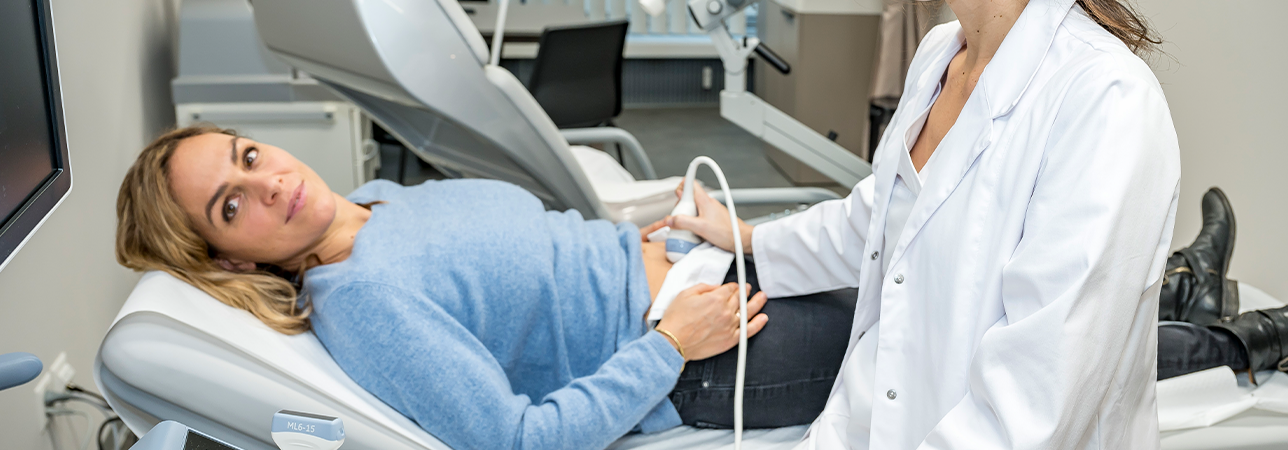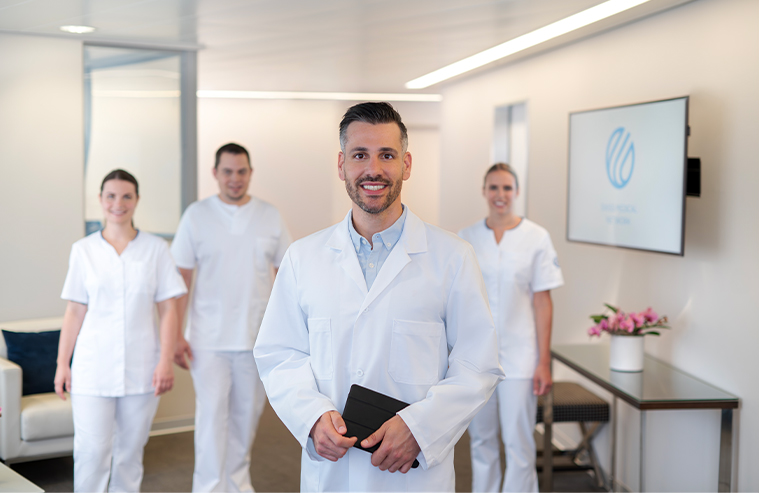
Gynaecology
In gynaecology, everything revolves around the study of the development, detection, treatment and prevention of diseases of the female sexual and reproductive tract.
In everyday language, the gynaecologist is often also referred to as a gynaecologist, but the field of gynaecology covers many different disciplines. On the one hand, general gynaecology or obstetrics belong to the classic specialities, but some gynaecologists also practise specialised sub-disciplines, such as gynaecological oncology or urogynecology.

Gynaecological examinations and treatment
The most important fields of treatment include:
- General gynaecology
- Gynaecological examinations (health checks)
- Assessment and treatment of abdominal pain and bleeding disorders (menstruation)
- Diagnosis and treatment of endometriosis
- Diseases of the uterus (fibroids)
- Diagnosis and treatment of abdominal cancer
- Diagnosis and treatment of breast cancer
- Gynaecological oncology
- Diagnosis and treatment of UTIs and incontinence (urogynaecology)
- Clarification of hormonal problems and menopausal symptoms
- Contraception
- Clarifications and therapies in the event of infertility
- Care during pregnancy
- Obstetrics
Our clinics offer the full gynaecological spectrum.
Our clinics in Lugano, Zurich, Saint-Imier and Geneva also have large maternity and family wards.
Contact
Contact
FAQs
What tasks fall within a gynaecologist’s remit?
Gynaecologists accompany and support women from puberty to old age. They are the first point of contact for all questions relating to the female body and are responsible for numerous tasks. In addition to preventing, diagnosing and treating female-specific health disorders, gynaecologists are responsible in particular for looking after women during pregnancy. In the best-case scenario, they accompany women from the first ultrasound examination to the birth of the baby and continue to support their patients after they give birth as part of their follow-up examinations.
When should you go for your first visit to the gynaecologist?
In principle, there is no specific age at which a young girl should have her first gynaecological examination. However, it is advisable to make an initial visit before the age of 18, or at the latest at the time when you wish to start having sex. Other reasons for visiting a gynaecologist as a teenager may be to have a general examination, contraception or discomfort/problems associated with menstrual bleeding.
What is a gynaecological emergency?
All life-threatening diseases or injuries to the female genital organs or complications during or after pregnancy are classified as a gynaecological emergency. It is therefore always advisable to consult a gynaecologist or go to a gynaecological clinic if you suspect an injury to or illness of the female genital organs that poses a threat to life, or if complications occur during the course of pregnancy or after giving birth.








